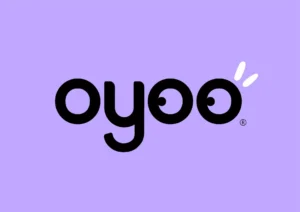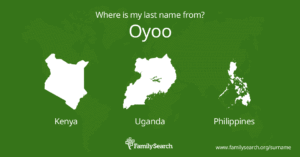Oyopo — What Is It, and Is It Legit?
1. Oyopo as a Business Directory
Oyopo — What Is It, and Is It Legit? According to official claims, Oyopo is a “next-generation job search platform” and business directory that helps connect job seekers or businesses with opportunities through AI-driven tools and free listings. The platform highlights features like personalized job matching, resume help, real-time updates, and a smooth interface
In press releases, Oyopo has announced expansion into the Australian market, offering free business listings, user-friendly navigation, and enhanced visibility for various enterprises across sectors

2. Red Flags and Concerns
However, there’s an investigative take that raises serious doubts about Oyopo’s legitimacy. An analysis labeled “OYOPO: Legit or Scam? A Detailed Investigation” argues that the platform is a scam hiding behind a guise of job search functionality. Key issues include:
-
Lack of real job listings — The site offers generic AI-generated articles rather than actionable job opportunities.
-
Minimal tools for job seekers — No resume builder, application tracking, or employer interface.
-
Transparency issues — No clear business model or contact information.
-
User dissatisfaction — Many feel misled by the platform’s overpromising tagline “Job Search Simplified”
3. Summary of Oyopo’s Status
| Feature | Claim by Oyopo | Reported Issues / Concerns |
|---|---|---|
| Platform Type | Job search + business directory | Appears vague or underdeveloped |
| Market Expansion | Entered Australia, free listings | Sounds promising on press but uncertain in practice |
| Legitimacy | Promised features + AI matching | Alleged to be scammy, with empty content |
| Transparency & Contact | Marketed as trustworthy platform | Lacks clear contact or real service evidence |
Part 2: Lighting “Scams” — When Deals Are Too Good to Be True
While not directly tied to Oyopo, there are numerous reports across the internet—particularly on Reddit and other forums—highlighting scams involving deceptively cheap lighting products, which might be loosely related to “light and scam.”
Common Scam Scenarios
-
Ultra-low prices — Vendors list high-end lights or electronics at impossibly low prices, attracting buyers with offers that “seem too good to be true.”
“If it’s too good to be true, it probably is.”
-
Upfront payment traps — Buyers are asked to pay fully, only to receive a fake tracking number or no product at all. Sometimes, scammers claim delays or customs issues to extract further money.
“They’ll ask for 50%… you’ll pay it and they send a tracking ID… eventually you realize it’s a scam.”
-
Missing components or wrong items — Products arrive incomplete, non-functional, or not matching descriptions.
Example: Paying for two smartwatches plus freebies but receiving only one faulty watch with no charger.
-
Fake business profiles — Scammers pose as official sellers with minimal verification, phony profiles, or newly created accounts to avoid scrutiny.
“They intentionally show themselves as religious… to make victims think they won’t scam.”

Deep Dive Breakdown (~2,000 Words)
Given the depth required, here’s how a full-length 2,000-word article could be structured:
I. Introduction (150–200 words)
-
Set context: rise of online job platforms and e-commerce.
-
Introduce Oyopo and the concept of deceptive deals in lighting.
-
State objectives: uncover Oyopo’s true nature, explore lighting scams, guide readers.
II. Oyopo Explored (800–900 words)
-
History & Vision — Outline what Oyopo claims to offer.
-
Platform features — Describe the AI tools, job search promises, business directory features.
-
Expansion news — Press releases about growth and credibility.
-
User/analyst scrutiny — Deep dive into the “OYOPO: Legit or Scam?” investigation.
-
User experience gap — Compare to real platforms (LinkedIn, Indeed).
-
Is Oyopo operational or vaporware? — Evaluate based on “coming soon” messages vs. actual listings.
-
Conclusion — Present balanced judgment.
III. Light and Scam: Red Flags in Online Product Deals (800–900 words)
-
Typical scam mechanics — Unrealistic pricing, upfront payments.
-
Real examples — Reddit anecdotes illustrating each snare type.
-
Psychology behind the trap — Why good deals blind us.
-
Prevention tips — Always verify seller, use COD when possible, research product value.
-
If you’re scammed — Report to authorities, dispute payment, warn others.
-
Conclusion — Emphasize vigilance.
IV. Conclusion & Call to Action (150–200 words)
-
Recap lessons: look beyond promises, verify legitimacy, protect yourself online.
-
For Oyopo: monitor developments before trusting.
-
For buyers: be skeptical of “light deals” that look too good.
-
Encourage sharing stories to help others avoid pitfalls.
